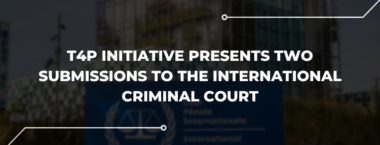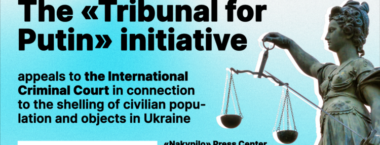
Torments, Torture Chambers, Executions: T4P Initiative Presents Two Submissions to the International Criminal Court
Information about extrajudicial executions of Ukrainians by the Russian military and Russian torture chambers in...
28 September 2023
18.12.2017
An absence of open records of persons who died in the course of the armed conflict between Russia and Ukraine as well as lack of access to the reliable information leaves a lot of room for manipulating the minds of Ukrainians and international community, misrepresenting the real situation and disrupting the peacekeeping efforts of international organizations. The fragmentary and contradictory nature of databases managed by the government agencies and NGOs complicates development of the efficient state information policy and effective counteraction to false information. That is why the interactive Memorial Map containing information about all the victims, created by UHHRU’s Human Rights Abuse Documentation Center in 2017, is being the first step toward identification and commemoration of the conflict victims, as well as objective representation of the situation in Ukraine and eventual reconciliation.
One of the elements of the information warfare that accompany the hybrid armed conflict is, in Russia’s case, cover-up of the presence of Russian soldiers, and in Ukraine’s case – cover-up of the true circumstances of deaths among military and civilian population. Vague and contradictory information regarding the number of victims, as well as the fragmentary nature of existing databases are detrimental to the population’s general awareness and disruptive to elaboration of information policy by the state and efficient counteraction to the false information. At the same time, this poses a constant threat to people’s right to information, social security and legal aid. Both the international community and civil society organizations have been emphasizing how critical it is to address this issue. For this purpose, the interactive Memorial Map, http://memorialmap.org/, was created at the initiative of UHHRU. The Map is being a modern resource of collected and visualized information listing by name more than 10 thousand persons killed during the Russian-Ukrainian war – civilians and soldiers alike (including those from the self-proclaimed DPR/LPR)1 . It displays, in chronological order, locations with identified victims; cases are sorted both by date of death and country of origin. This activity is being conducted as a part of UHHRU’s work on creating and implementing in Ukraine a national model of transitional justice, which, in particular, calls for commemorating all the victims as the first step toward reconciliation; truth telling – to everyone and by everyone; just satisfaction – providing compensation for immaterial and material damage to the families of those killed in the course of the conflict.
You could read full summary under this link.
Development of the Ukrainian Helsinki Human Rights Union’s website “Memorial Map” is made possible by the generous support of the American people through the United States Agency for International Development (USAID) in the framework of the Human Rights in Action Program, as well as within the Human Rights First Project funded by Global Affairs Canada. The website upgraded in the framework of Transition Promotion Program funded by the Ministry of Foreign Affairs of the Czech Republic.
Authors of the publication are Valeriy Snegiryov, Sergiy Movchan, Oleksiy Bida. Data collection, processing and website content updating were also carried out by Andriy Gladun and Vidal Sorokin.
This publication is made possible thanks to Transition Promotion Program; Executive summary in English issued in frames of the USAID Human Rights in Action Program. Opinions and recommendations presented here do not necessarily reflect the views of the mentioned institutions or governments of the aforementioned countries. The contents are the responsibility of the authors.
If you find an error on our site, please select the incorrect text and press ctrl-enter.

Information about extrajudicial executions of Ukrainians by the Russian military and Russian torture chambers in...
28 September 2023

Since the onset of the full-scale invasion, the «Tribunal for Putin» initiative has recorded about...
18 August 2023

Position of Ukrainian organizations of the Human Rights Houses Network and Ukrainian lawyers on the...
17 July 2023

On June 6, 2023, the Southern Area Military Court of Rostov-na-Donu sentenced Mr.Bohdan Ziza, a...
08 June 2023